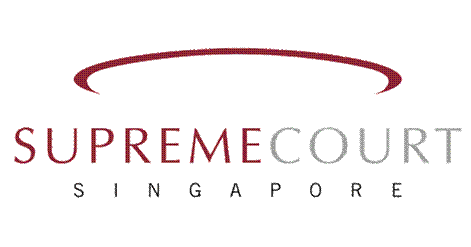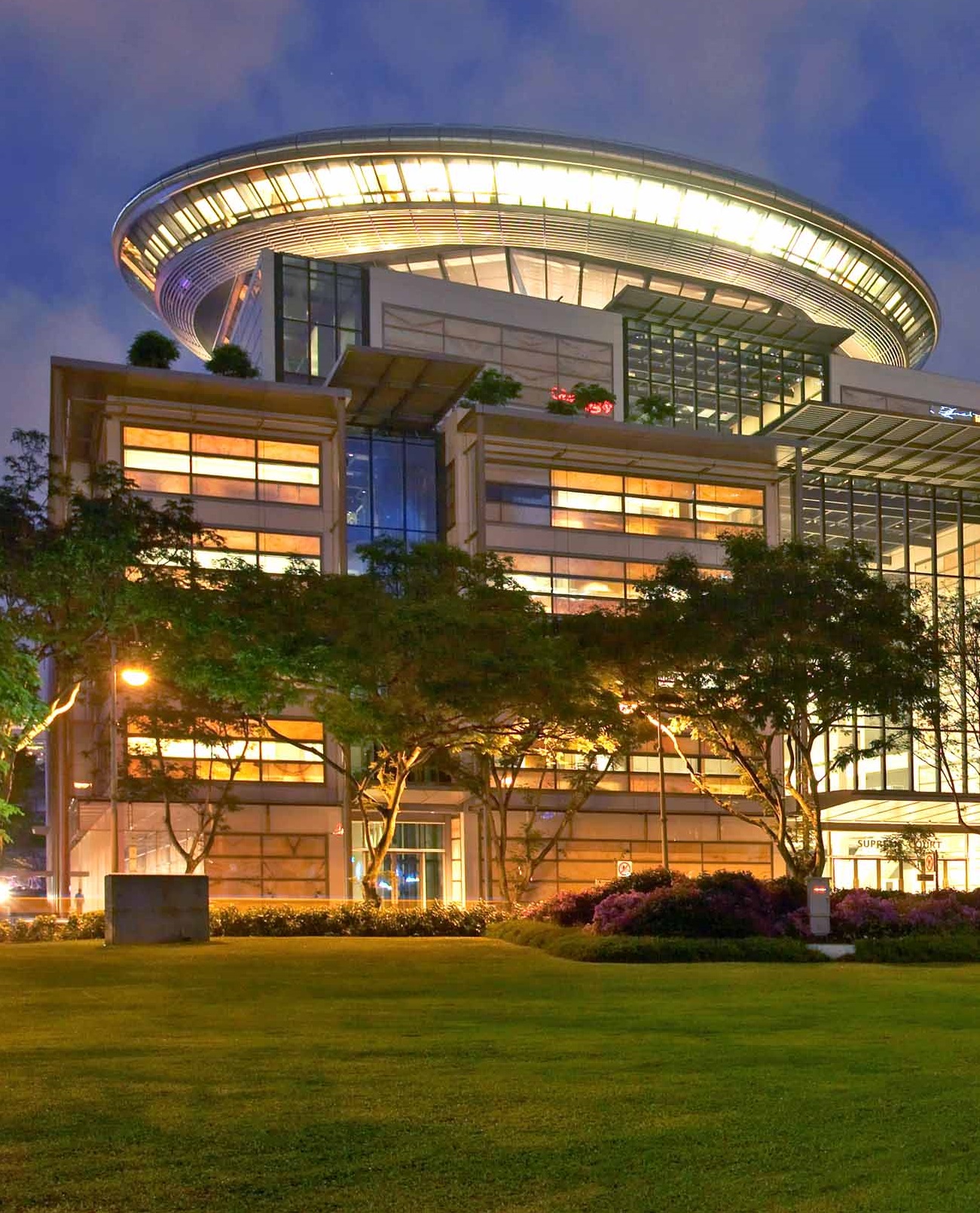Singapore Courts
Supreme Court of Singapore

The Supreme Court is made up of the Court of Appeal and the High Court, and hears both civil and criminal matters. Led by the Honourable the Chief Justice Sundaresh Menon, the Supreme Court Bench consists of the Judges of Appeal, Judges and Judicial Commissioners of the Supreme Court.
The High Court has jurisdiction to try all offences committed in Singapore and may also try offences committed outside Singapore in certain circumstances. In criminal cases, the High Court generally tries cases involving capital offences or cases involving imprisonment terms that exceed 10 years. Generally, except in probate matters, a civil case must be commenced in the High Court if the value of the claim exceeds $250,000. Probate matters are commenced in the High Court only if the value of the deceased's estate exceeds $5,000,000 or if the case involves the resealing of a foreign grant. In addition, ancillary matters in family proceedings involving assets of S$1,500,000 or more are also heard in the High Court.
Since 2002, various specialised courts like the Admiralty Court, the Intellectual Property Court and the Arbitration Court have also been set up in the Supreme Court in response to the increasing complexity of commercial cases reaching the judiciary. The establishment of dedicated specialist commercial courts underscores the Supreme Court´s depth of expertise and experience in these areas, and its commitment to position and promote Singapore as a premier centre for dispute resolution and as a jurisdiction of choice for the resolution of both domestic and international commercial disputes.
Please visit the Supreme Court website for more information.
Singapore International Commercial Court (SICC)

Building on Singapore’s reputation of having a world-class judiciary that is well-known for its efficiency, competence and integrity, the Singapore International Commercial Court (SICC) was established specifically to provide parties with a prime destination for international commercial dispute resolution. The SICC offers parties an efficient dispute resolution process adjudicated by a panel of experienced judges comprising specialist commercial judges from Singapore and international judges from both civil law and common law traditions.
The SICC is a division of the Singapore High Court. It offers the option of a court-based dispute resolution mechanism focused on international and commercial disputes, even where the dispute has no connection with Singapore and is not governed by Singapore law.
The SICC has a number of key features, like a diverse panel of eminent international and local jurists, which differentiate it from other Courts.
Others include:
More options for representation: A party to proceedings may, in certain circumstances like offshore cases, be represented by foreign counsel, who must be registered with the SICC and be subject to a Code of Ethics. Foreign counsel may also appear to address the SICC on matters of foreign law.
More flexible court procedures: Court procedures in the SICC follow international best practices for commercial disputes. However, due to the international and commercial nature of disputes and the parties, the SICC’s court procedures are flexible in various respects:
- Confidentiality: The Court generally takes a more liberal approach in granting confidentiality orders for offshore cases
- Rules of evidence: Ability to apply to the Court to adopt rules of evidence that you are familiar with
- Determination of foreign law: Questions of foreign law may be determined on the basis of submission instead of proof
- Document production or discovery: The document production rules are similar to that in the International Bar Association Rules on the Taking of Evidence in International Arbitration
- Costs: Costs are at the discretion of the Court, with the general principle that the unsuccessful party shall pay the reasonable costs of the proceedings to the successful party
Please visit SICC's website for more information.
State Courts of Singapore

The Judiciary is one of the three constitutional pillars of government along with the Legislature and the Executive. As an Organ of State, the Judiciary's function is to independently administer justice. The Chief Justice is the head of the Judiciary which comprises the Supreme Court and the State Courts (originally called Subordinate Courts).
The State Courts of Singapore include the District Courts, the Magistrates´ Courts, the Specialised Courts (i.e. Family and Juvenile Court, etc.) and the Employment Claims and Small Claims Tribunals. As a critical component of the Judiciary, the State Courts handle more than 95% of the Judiciary's caseload.
The Presiding Judge has overall responsibility for the leadership and management of the State Courts.
The Presiding Judge of the State Courts is assisted by the Deputy Presiding Judge who concurrently heads the Corporate Services Division as Registrar of the State Courts. The Presiding Judge and Deputy Presiding Judge are supported by the Leadership Team comprising the Principal District Judges/ Heads of Division, senior judicial officers and senior court administrators. The Leadership is supported by court administrators from the six divisions in the State Courts.
Please visit the State Courts website for further details.
Family Justice Courts

The Family Justice Courts (FJC) are the product of the review of the family justice system by the Committee for Family Justice. Established by the Family Justice Act 2014 and a restructure of the courts system, the FJC aim to address better the needs of youth and families in distress by carving out all family-related work under a specialised body of courts, comprising the Family Division of the High Court, the Family Courts and the Youth Courts. In contrast with the adversarial approach undertaken by commerical and criminal matters that come before the other courts, the FJC frame disputes from the perspective of families and the individuals within. In keeping with this approach, the FJC also provide a suite of family specific services, enhanced processes and identify relevant training programmes that develop family-specific skills in judges, lawyers and other family practitioners.
Please visit the Family Justice Courts website for more information.
25379